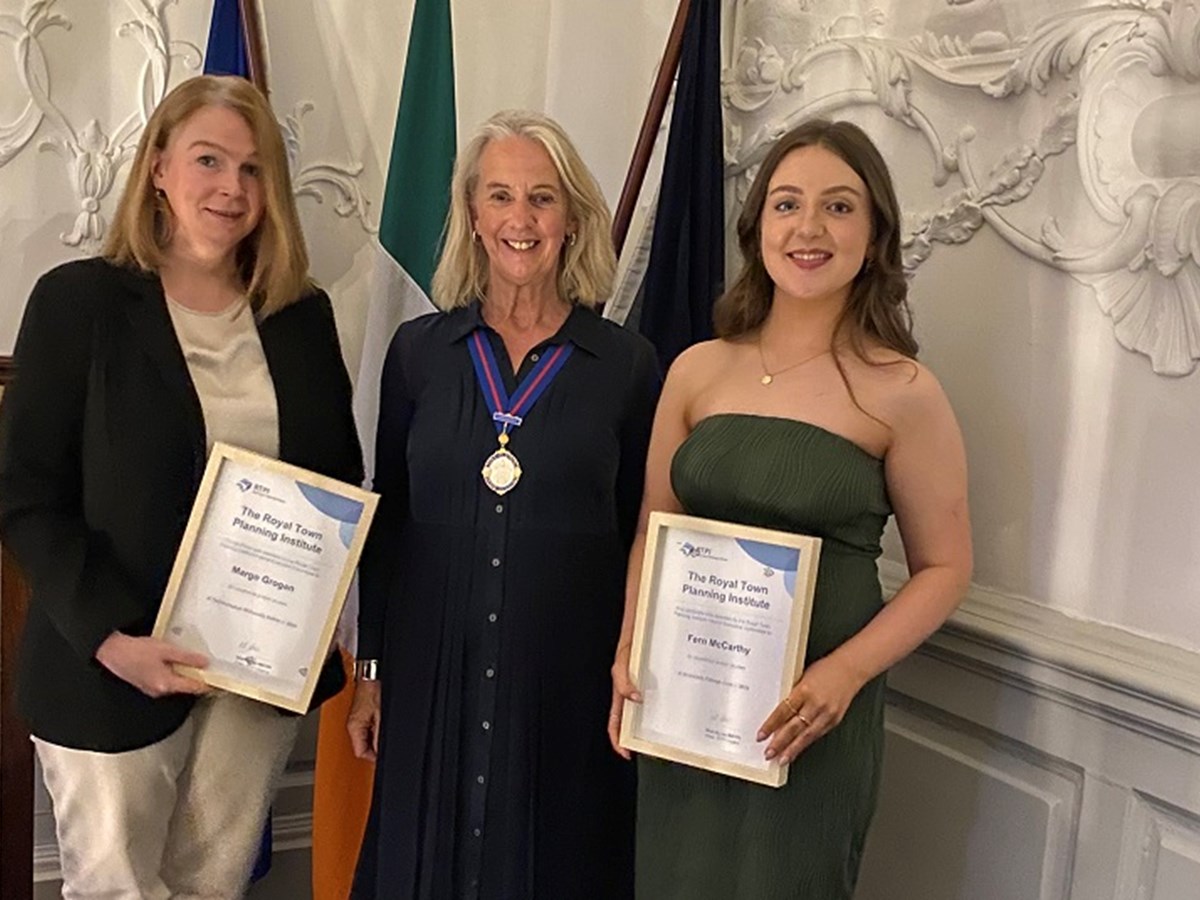Dr Caroline Brown is the Director for Scotland, Ireland and English Regions
Last week I accompanied RTPI President, Lindsey Richards, to the RTPI Ireland Annual Dinner in Dublin. We added some visits to projects, planners and a planning school to the itinerary for a busy couple of days getting out and about.
The conversations during the trip – and sparked by Lindsey’s address to the dinner – point to many shared issues in the Irish and British planning systems. Ireland is facing an acute shortage of planners and growing demand. There’s the burgeoning demand from the energy sector and private sector development, plus state bodies An Bord Pleanala (the Appeals Board) and the Office of the Planning Regulator who also need planners to do their work. That’s on top of the everyday work of planners in local authorities determining applications and preparing local development plans.
During the trip Lindsey heard about the pipeline of future Irish planners, and making planning an attractive career for young people. In that vein, the Annual Dinner included presentations to three young planners, the top student in each planning school, and it was lovely to have the company of several student planners during the evening. Congratulations to Margo Grogan (TU Dublin), Fern McCarthy (University College Cork) and Alexis Helsdon (University College Dublin) on their achievements!

Lindsey with RTPI Ireland Student awards winners Margo Grogan and Fern McCarthy

Lindsey with Aidan Culhane (Exec Committee), Niall Cussen (Chief Executive of the Office of the Planning Regulator) and Paul Hogan (Acting Assistant Secretary at the Department of Housing, Local Government and Heritage)
We also had conversations about bursaries and apprenticeship routes – as ways to increase the options for young planners and create a more diverse profession. We heard about visa issues and the difficulty of retaining international students to work as planners or to recruit new workers from overseas. Backlogs and delays are also a feature of the Irish planning system – although these tend to be linked to the appeals process and judicial reviews rather than the initial process for granting planning permission. There’s a discourse of anti-planning in Ireland just as much as there is in the UK.
The political backdrop in Ireland is somewhat different to the UK, with a current government formed by a coalition of three parties. But there’s a General Election due in Ireland in the next few months – so there’s a familiar conversation happening there about when that might happen and what the prospects are for the different political parties. While this week’s local and European elections in Ireland may provide some clues, housing seems likely to be a key political issue, with speed of delivery and the role of planning a key talking point.

Visiting Seven Mills - a large new development in the South Dublin jurisdiction

The development is being created by Cairn Housing who showed us around
Our visit to Dublin was a great success – a heartfelt thanks to Dublin City, Cairn Housing and South Dublin planners who shared their work with us; and to staff at TU Dublin who showed us some fantastic student work and gave us a tour of their Grangegorman Campus. The campus is itself a great planning project, developing a new educational quarter that links communities, reuses historic buildings alongside new facilities and open space.
Comparison is said to be the thief of joy – but it also offers insight and inspiration, emphasising our commonalities and shared challenges. They’re the same, but different.

Lindsey with Niall Byrne, 2024 Chair of the Irish Executive Committee

Lindsey with Gavin Lawlor, President of the Irish Planning Institute


